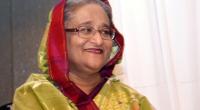 For a long time now there have been complaints publishers are denying the writers royalties for their published books, despite the hard work they put into their art.
For a long time now there have been complaints publishers are denying the writers royalties for their published books, despite the hard work they put into their art.
Since the writers are often in the dark about exactly how many copies are being published, they don’t really have much to say for royalties.
Publishers, on the other hand, believe that there would be no room for these allegations if the writer and publisher establish a mutual bond based on trust.
The main hitch in the whole affair is the absence of a contract.
Young writers allege that publishers do not wish to sign contracts and with only a few exceptions, most of them are deprived of their royalties.
Meanwhile, Bangla Academy made it mandatory for publishers to provide proof of royalty before allocating stalls for the Ekushey Book Fair-2019.
The move was made to stamp out illegal practice amongst publishers who cheated the writers out of large sums of royalties for books sold.
Publishers, on the other hand, were unhappy with the decision, saying that Bangla Academy has no jurisdiction of demanding papers without specific allegations.
Hamim Kamal, who won the Gemcom Young Literary Award-2018, is yet to receive the royalties for his published books.
“A book is a work of art that requires diligent hard work and time,” he said, adding that he was being deprived of the money made out of his own artwork.
According to a yearly report by Bangla Academy, 4,590 books were published in last year’s book fair.
Books at the fair are sold at a 25 percent commission basis and nearly 8 million books are sold there. Even though writers are supposed to get 15-20 percent in royalties, most publishers with the few well-known exceptions don’t give the writers their money.
The publishers that do pay don’t pay the royalty based on the main price but on the discounted price.
Publishers say that writers are paid 15-20 percent of the sale price as a royalty. For example, if the price of the book is Tk 100, a writer will get Tk 10 per book. The do pay 15 percent if a book is discounted but the amount doesn’t really differ.
Then again there are publishing houses that deduct the money for cover, editing and proofreading from the royalties.
Academic and Creative Publishers Association of Bangladesh (ACPAB) Senior-Joint Secretary and owner of Anupam Publishers Nimai Kanti deemed the allegations as baseless.
“There have to be specific complaints against not receiving the royalty. Why would the writer give his book if he’s not getting the money?” he said.
There are houses that pay according to the number of books sold, or even before the sale of the books. Some pay the whole amount together.
Responding to queries about what should be deemed standard, “It depends on their (writer-publisher) relation.”
He added that verbal agreements are more usual because the publishing world has not yet morphed into an industry.
Kanti said that ACPAB might discuss the issue if specific complaints come up, but the writer must have a contract with the publisher.”
On the other hand, Robin Ahsan of Sraban Publishers emphasized the importance of a contract.
“The important thing is the contract. Whatever book a writer wants to publish, he can collect the money if there is a contract,” he said.
He said that he likes to work with hassle-free writers who won’t get him tangled in lawsuits.
Executive Director of ACPAB and owner of Bhashachitra Khndaker Manirul Islam told Bangla Tribune, “It’s the publishers who are tried every time there is a question about professionalism.”
He added that being professional is a difficult job given that no writers’ books sell out completely.
 Others
Others
40922 hour(s) 54 minute(s) ago ;
Evening 09:49 ; Tuesday ; Jun 17, 2025
Writer-publisher contract reality
Send
Udisa Islam
Published : 02:00, Feb 03, 2019 | Updated : 02:00, Feb 03, 2019
Published : 02:00, Feb 03, 2019 | Updated : 02:00, Feb 03, 2019
0 ...0 ...
/st/zmi/
Topics: Top Stories
- KOICA donates medical supplies to BSMMU
- 5 more flights to take back British nationals to London
- Covid19: Rajarbagh, Mohammadpur worst affected
- Momen joins UN solidarity song over COVID-19 combat
- Covid-19: OIC to hold special meeting
- WFP begins food distribution in Cox’s Bazar
- WFP begins food distribution in Cox’s Bazar
- 290 return home to Australia
- Third charter flight for US citizens to return home
- Dhaka proposes to postpone D8 Summit
Unauthorized use of news, image, information, etc published by Bangla Tribune is punishable by copyright law. Appropriate legal steps will be taken by the management against any person or body that infringes those laws.
Bangla Tribune is one of the most revered online newspapers in Bangladesh, due to its reputation of neutral coverage and incisive analysis.
F R Tower, 8/C Panthapath, Shukrabad, Dhaka-1207 | Phone: 58151324; 58151326, Fax: 58151329 | Mob: 01730794527, 01730794528


